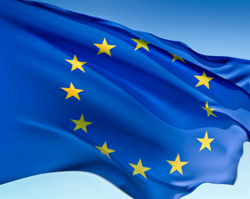 BRUSSELS – Tech Talk – The teaching of IT, entrepreneurial and citizenship skills is fundamental for preparing young people for today’s job market, but, in general, schools are still paying insufficient attention to these transversal skills compared with basic skills in literacy, mathematics and science, according to a new European Commission report. Part of the problem is rooted in difficulties with assessment. For example, only 11 European countries (Belgium Flemish community, Bulgaria, Estonia, Ireland, France, Latvia, Lithuania, Malta, Poland, Slovenia and Finland) have standardised procedures to assess citizenship skills, which aim to develop critical thinking and active participation in school and society. Such testing does not exist at all for entrepreneurship and IT skills in any of the 31 countries which took part in the survey (27 EU Member States, Croatia, Iceland, Norway and Turkey). The report also outlines progress in teaching six of the eight key competences defined at EU level for lifelong learning in knowledge, skills and attitudes.
BRUSSELS – Tech Talk – The teaching of IT, entrepreneurial and citizenship skills is fundamental for preparing young people for today’s job market, but, in general, schools are still paying insufficient attention to these transversal skills compared with basic skills in literacy, mathematics and science, according to a new European Commission report. Part of the problem is rooted in difficulties with assessment. For example, only 11 European countries (Belgium Flemish community, Bulgaria, Estonia, Ireland, France, Latvia, Lithuania, Malta, Poland, Slovenia and Finland) have standardised procedures to assess citizenship skills, which aim to develop critical thinking and active participation in school and society. Such testing does not exist at all for entrepreneurship and IT skills in any of the 31 countries which took part in the survey (27 EU Member States, Croatia, Iceland, Norway and Turkey). The report also outlines progress in teaching six of the eight key competences defined at EU level for lifelong learning in knowledge, skills and attitudes.
“It is only by equipping children and young people with the necessary skills, including transversal skills, that we will ensure that the European Union will have the means to remain competitive and to seize the opportunities of the knowledge economy,” said Androulla Vassiliou, European Commissioner for Education, Culture, Multilingualism and Youth. “This study shows us where there is room for improvement and, most importantly, what we need to do to create more opportunities for our youth. Rethinking education, a policy initiative that I will launch tomorrow, will outline concrete proposals for doing this.”
Transversal skills are generally taught as a part of other subjects and national curricula in most countries cover IT, entrepreneurship and citizenship. But the picture is uneven. Nine countries (Germany, the Netherlands, Italy, Greece, Romania, Ireland, Denmark, Belgium Flemish community and Croatia) do not explicitly cover entrepreneurship education at primary level while digital competences are addressed in primary school everywhere except Croatia.
It is still surprisingly unusual for schools to teach digital competences as part of science, mathematics and languages. The report shows that integrating IT, entrepreneurship or citizenship education into core subjects may require schools to change the way they teach, as well as establishing agreed learning outcomes and appropriate assessment methods.
The report provides analytical evidence for policy-makers and supports the approach adopted in the European Commission’s new ‘Rethinking Education’ strategy, due for adoption tomorrow (20 November). This outlines the measures which Member States need to take to ensure education and training systems deliver the skills required in the modern workplace.
Background
Eight key competences for lifelong learning in knowledge, skills and attitudes were defined at EU level in 2006. They are: communication in the mother tongue; communication in foreign languages; mathematical competence and basic competences in science and technology; digital competence; social and civic competences; sense of initiative and entrepreneurship; learning to learn; cultural awareness and expression.
These competences are fundamental in a knowledge-based society to meet the needs of the labour market, social cohesion and active citizenship. The idea is to ensure greater flexibility and adaptability, satisfaction and motivation. The report outlines progress in teaching these competences and suggests measures to ensure that education and training providers respond to changing demands for skills. Learning to learn and cultural awareness and expression were not covered by the report.
The report compiles information from seven recent reports by the Eurydice network and covers compulsory and secondary general education in the 31 European countries covered. The reference year is 2011-12.
Eurydice
The report is produced for the Commission by the Eurydice network, which consists of 38 national units based in 34 countries (EU Member States, Croatia, Iceland, Liechtenstein, Norway, Serbia, Switzerland and Turkey). Eurydice is co-ordinated and managed by the EU Education, Audiovisual and Culture Executive Agency.






